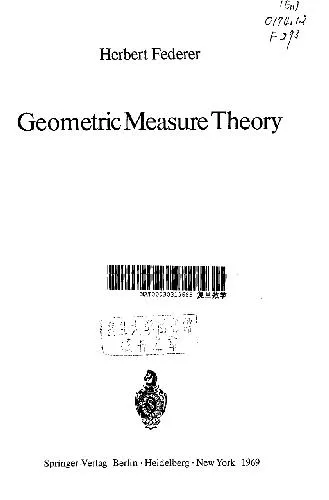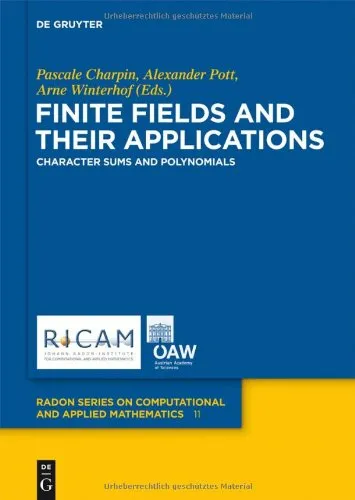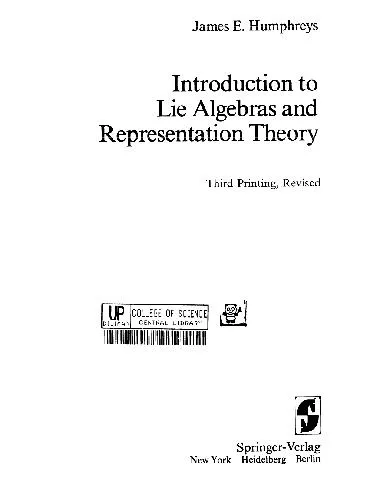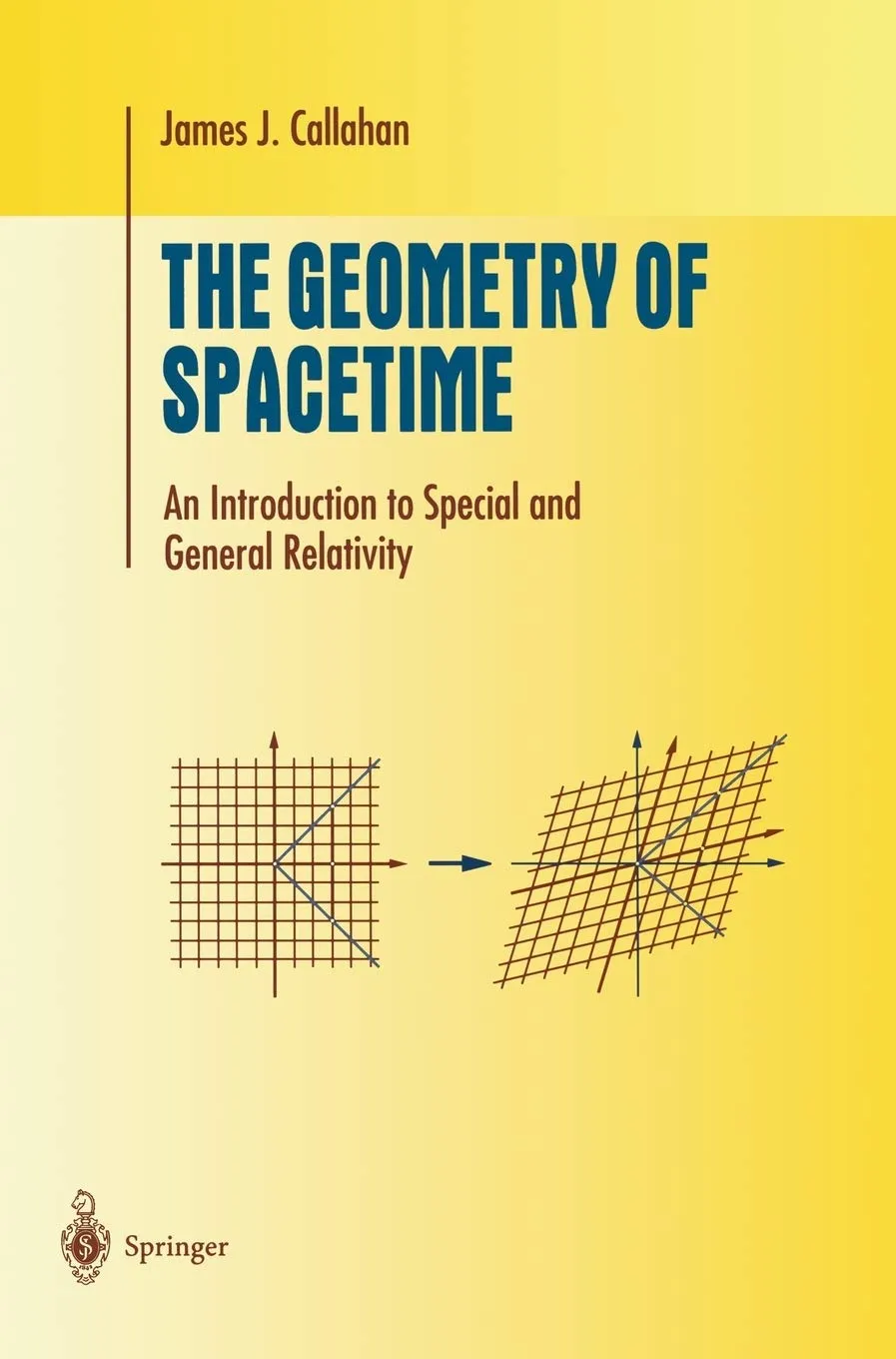Methods of Algebraic Geometry in Control Theory: Part I: Scalar Linear Systems and Affine Algebraic Geometry
4.9
بر اساس نظر کاربران

شما میتونید سوالاتتون در باره کتاب رو از هوش مصنوعیش بعد از ورود بپرسید
هر دانلود یا پرسش از هوش مصنوعی 2 امتیاز لازم دارد، برای بدست آوردن امتیاز رایگان، به صفحه ی راهنمای امتیازات سر بزنید و یک سری کار ارزشمند انجام بدینکتاب های مرتبط:
معرفی کتاب
کتاب 'Methods of Algebraic Geometry in Control Theory: Part I: Scalar Linear Systems and Affine Algebraic Geometry' به تالیف پیتر فالب، به بررسی روشهای هندسه جبری در نظریه کنترل میپردازد. در این جلد اول از سری، مباحث مرتبط با سیستمهای خطی اسکالر و هندسه جبری Affine با جزئیات تحلیل و تشریح میشوند. این کتاب یکی از منابع بینظیر در پیوند بین دانش پیچیده هندسه جبری و کاربرد آن در نظریه کنترل سیستمها است.
خلاصهای از کتاب
این کتاب شامل بررسی دقیق ابزارهای ریاضی و مفاهیمی است که نقش محوری در فهم و طراحی سیستمهای کنترل خطی بازی میکنند. کتاب با فراهم کردن پایهای محکم از اصول و روشهای هندسه جبری آغاز میشود و سپس استفاده از این اصول در حل مسائلی مانند تطابق سیستمهای خطی، تحلیل مکانیزمهای بازخور، و بهینهسازی سیستمها را پوشش میدهد. خوانندگان با مطالعه این کتاب درک عمیقتری از ساختار ریاضیاتی سیستمهای کنترل و نحوه تعامل آنها با هندسه جبری پیدا میکنند.
نکات کلیدی
- همپوشانی های مهم بین سیستمهای کنترلی و ساختارهای هندسی.
- تکنیکهای Affine Algebraic Geometry در تحلیل سیستمهای خطی.
- کاربرد روشهای جبر خطی در بهینهسازی و تحلیل پایداری.
- خوانش دقیق و شناور متن نسبت به جزئیات فنی.
نقل قولهای معروف از کتاب
هدف از این بررسی، نه تنها ارائه یک ابزار جدید بلکه توسعه دیدگاهی جامع و نامحدود از کاربردهای هندسه جبری در سیستمهای کنترل است.
همپوشانی معنادار بین هندسه جبری و نظریه کنترل نه تنها قادر به حل برخی از مشکلات قدیمی زمینه مهندسی است، بلکه الگوهای جدیدی از تفکر را فراهم میآورد.
اهمیت این کتاب
کتاب پیتر فالب برای دانشجویان و محققان علاقمند به استفاده از روشهای ریاضی پیشرفته در حل مسائل پیچیده سیستمهای دینامیکی نوشته شده است. این کتاب نه تنها به صوت علمی به کاوش در نظریه کنترل میپردازد، بلکه به نحوی که برای خواننده امکانساز است، پیچیدگیهای جدیدی از تعامل بین ریاضیات و مهندسی را نمایان میکند. بدین ترتیب، این اثر به یک مرجع ارزشمند برای یادگیری و نوآوری در زمینههای مهندسی و ریاضیات تبدیل شده است.
Welcome to a profound exploration of the intricate relationship between algebraic geometry and control theory as presented in 'Methods of Algebraic Geometry in Control Theory: Part I: Scalar Linear Systems and Affine Algebraic Geometry.' This book serves as a fundamental piece in bridging the gap between two complex, yet deeply interconnected fields. Authored by Peter Falb, it builds a robust theoretical foundation that enables readers to grasp sophisticated concepts with clarity and precision.
Detailed Summary of the Book
'Methods of Algebraic Geometry in Control Theory: Part I' meticulously guides the reader through the fundamental principles of scalar linear systems and their algebraic-geometric interpretations. The importance of algebraic geometry in system theory is elucidated by demonstrating its application in the analysis and design of control systems. The book delves into affine algebraic geometry, providing insights into its utility for solving linear static and dynamic problems. The exposition begins with a detailed examination of scalar linear systems, laying the groundwork for exploring their geometric properties. Subsequent chapters illuminate the symbiosis between algebraic methods and control systems, highlighting the advantages of an algebraic geometric approach. These include simplified computations, enhanced accuracy in modeling, and robust structural analysis of systems.
Key Takeaways
- Understanding of how algebraic geometry facilitates problem-solving in control theory.
- Comprehensive insight into scalar linear systems through the lens of affine algebraic geometry.
- Application of these methods in the design and analysis of dynamic systems for enhanced computational simplicity and precision.
- Conceptual clarity in establishing connections between algebraic and geometric representations within system theory.
Famous Quotes from the Book
"The elegance of algebraic geometry lies in its ability to render complex control systems accessible and interpretable."
"By uncovering the nuanced relationships between structure and function, algebraic geometry opens up a world of possibilities in control theory."
Why This Book Matters
This book is a cornerstone for those delving into the realms of mathematical control theory, aiming to transcend traditional analytic methods. The text is pivotal for engineers and mathematicians who seek in-depth theoretical knowledge coupled with practical application. By providing a definitive guide to affine algebraic geometry's role in control systems, it fosters a greater understanding of system theory's mathematical underpinnings. It equips practitioners and scholars with novel perspectives and powerful tools to approach complex control systems, thus contributing significantly to advances in fields like aerospace, robotics, and any domain reliant on precise system management. Ultimately, it underscores the importance of interdisciplinary approaches in scientific inquiry, encouraging a synthesis of ideas across mathematical and engineering disciplines for exponential problem-solving capabilities.
دانلود رایگان مستقیم
شما میتونید سوالاتتون در باره کتاب رو از هوش مصنوعیش بعد از ورود بپرسید
دسترسی به کتابها از طریق پلتفرمهای قانونی و کتابخانههای عمومی نه تنها از حقوق نویسندگان و ناشران حمایت میکند، بلکه به پایداری فرهنگ کتابخوانی نیز کمک میرساند. پیش از دانلود، لحظهای به بررسی این گزینهها فکر کنید.
این کتاب رو در پلتفرم های دیگه ببینید
WorldCat به شما کمک میکنه تا کتاب ها رو در کتابخانه های سراسر دنیا پیدا کنید
امتیازها، نظرات تخصصی و صحبت ها درباره کتاب را در Goodreads ببینید
کتابهای کمیاب یا دست دوم را در AbeBooks پیدا کنید و بخرید
1289
بازدید4.9
امتیاز0
نظر98%
رضایتنظرات:
4.9
بر اساس 0 نظر کاربران
Questions & Answers
Ask questions about this book or help others by answering
No questions yet. Be the first to ask!










![The Shape of Space [math]](https://s3.refhub.ir/images/thumb/The_Shape_of_Space__math_29354.webp)


